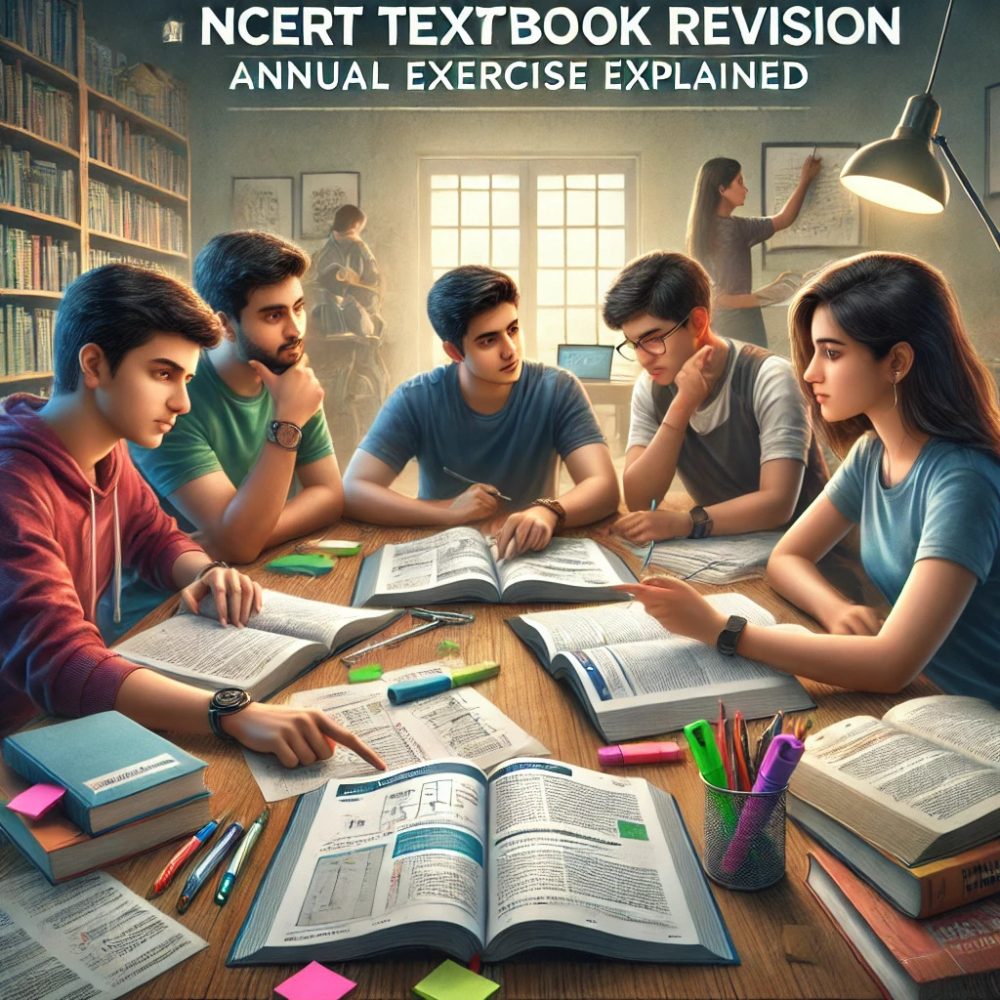
NCERT Textbook Revision: Annual Exercise Explained
Recommended for Education
India’s educational landscape is shifting. The National Council of Educational Research and Training (NCERT), the architect of the nation’s textbooks, is rewriting the curriculum. This change, driven by the National Education Policy 2020, is sparking debate and raising questions.
Join us as we explore the halls of NCERT, where experts deliberate on the future of education. We’ll delve into the controversial decisions – from replacing “India” with “Bharat” to omitting details of the Babri Masjid demolition.
We’ll examine the removal of content on Mughal emperors and the introduction of concepts like “minority appeasement.”
This is a story of change, challenge, and the enduring quest for knowledge in a dynamic and diverse India. It’s a journey into the heart of education, where the past and the future collide.
The Education Kaleidoscope: NCERT Weaves a New Narrative
India, a land of ancient wisdom and vibrant diversity, is constantly evolving. So too must its education system. The National Council of Educational Research and Training (NCERT), the custodian of our textbooks, has embarked on a journey of curriculum revision, guided by the National Education Policy (NEP) 2020. This isn’t the first such endeavor, but it’s a significant one.
Like a weaver adjusting threads on a loom, NCERT seeks to create a tapestry that reflects the nation’s ethos and aspirations. But as with any change, there are murmurs of dissent, whispers of concern. Let us delve deeper, seeking to understand the motivations behind these revisions and their potential impact on young minds.
The Director’s Voice: A Global Perspective
NCERT Director Dinesh Prasad Saklani, a man with a vision for education, assures us that this revision is a global and annual exercise. “It’s not about imposition,” he says, “but about evolution.” Subject experts and pedagogy specialists have meticulously combed through the existing curriculum, identifying areas that need updating or removal.
“Some subjects had become irrelevant,” Mr. Saklani explains, “like old garments that no longer fit. We’ve also added new information, much like adding vibrant threads to a tapestry to keep it fresh and engaging.”
The Covid Conundrum: Lessening the Load
The Covid-19 pandemic, a dark cloud that loomed over our lives, also cast a shadow on education. To ease the burden on students during those challenging times, certain topics were temporarily removed. Now, as we emerge from the pandemic’s grip, these topics are being reevaluated, with some finding their way back into the curriculum.
Social Science: Reframing the Past, Shaping the Future
From “India” to “Bharat”: A Symbolic Shift
One of the most debated changes is the recommendation to replace “India” with “Bharat” in school textbooks. This seemingly small alteration carries a powerful message, reflecting a growing sense of national identity and pride.
Mr. Saklani clarifies that both “Bharat” and “India” will be used interchangeably, echoing the usage in our Constitution. It’s a reminder that our nation is a tapestry woven with diverse threads, each contributing to its rich cultural heritage.
Ancient or Classical? A Historical Reclassification
Another proposed change is the replacement of “ancient history” with “classical history.” This subtle shift seeks to acknowledge the enduring influence of ancient Indian civilizations on our culture and traditions.
C.I. Isaac, chairperson of the committee overseeing the Social Science curriculum, envisions the inclusion of the Indian Knowledge System (IKS) in all subjects. It’s a bold move, one that could potentially reshape how we perceive our history and heritage.
A Controversial Omission: The Babri Masjid
The revised Political Science textbooks for class 12 have omitted certain details regarding the Babri Masjid demolition, a sensitive topic that continues to evoke strong emotions. This omission has sparked debate and raised questions about the balance between historical accuracy and social harmony.
Mughal Emperors and Minority Appeasement: A Shifting Narrative
The removal of a two-page table detailing the achievements of Mughal emperors has raised eyebrows. Some argue that it’s an attempt to downplay the contributions of a significant period in Indian history, while others see it as a corrective measure to ensure a balanced portrayal of the past.
The new Political Science textbook for Class 11 introduces the concept of “vote bank politics” and “minority appeasement,” suggesting that some political parties prioritize the interests of minority groups to secure votes. This inclusion has sparked discussions about the role of identity politics in our democracy.
The NCERT Ethos: Evolving Education for a Changing India
As the NCERT continues its curriculum revisions, one thing is clear: education is not static. It must adapt to the changing needs and aspirations of society. The goal is to equip students with the knowledge and skills they need to thrive in a rapidly changing world.
Related Stories
Watch a video
Explore the Heart of Indian Education: N.C.E.R.T Campus Tour!
Curious Times is a leading newspaper and website for kids. We publish daily global news aligned to your learning levels (also as per NEP 2020): Foundational, Preparatory (Primary), Middle and Senior. So, check out the News tab for this. We bring kids’ favourite Curious Times Weekly newspaper every weekend with top news, feature stories and kids’ contributions. Check out daily JokesPoke, Tongue Twisters, Word of the Day and Quote of the Day, kids need it all the time.
ME – My Expressions at Curious Times is your place to get your work published, building your quality digital footprint. And it is a good way to share your talent and skills with your friends, family, school, teachers and the world. Thus, as you will step into higher educational institutes your published content will showcase your strength.
Events, Quizzes and Competitions bring students from over 5,000 schools globally to participate in the 21st-Century themes. Here schools and students win certificates, prizes and recognition through these global events.
Sign-up for your school for FREE!
Communicate with us: WhatsApp, Instagram, Facebook, Youtube, Twitter, and LinkedIn
0 (Please login to give a Curious Clap to your friend.)
